The following is based on old notes + Allan Levine’s William Lyon MacKenzie King: A Life Guided by the Hand of Destiny + MacKenzie King’s own diaries.


An Academic Up to A Point
William Lyon MacKenzie, Mayor of York (later renamed Toronto), who led the failed Upper Canada Rebellion against the Family Compact, had a grandson with ambitions….William Lyon MacKenzie King (WLMK). And WLMK has since been ranked amongst the best Prime Ministers in Canada…longest serving. Why? He was calculating, bland and lacked a sense of humour but he was the inoffensive guy that the political system was designed to produce; before the technocratic Prime Minister’s Office could become an extension of the Prime Minister…MacKenzie Kng was an operator, a pragmatist in chief.
Educational Background: King did undergrad at University of Toronto then he did a masters in economics at the University of Chicago and then did PhD work at Harvard. He had a grudge with the UofT because he applied for a masters and they turned him down multiple times partly because of his anti-establishment student politics which upset the school’s dean. He moved to Ottawa in the late 1890s. which was still a lumber baron town and considered the ‘gloomy Pittsburgh of the north’ (usually associated with Hamilton).

The great fire of Hull in 1900, April 26th destroyed much of Hull, Quebec and more than 15,000 people lost their homes in Hull. The capital of Canada was a work in progress. Small. Canada itself was just getting started. It’s quite difficult to even fathom this past, a country so sparsely populated and under-developed. The standard of living of a Canadian today is insanely wealthy relative 100 years ago.
Small Country, Growing Population and Government Services
The competition for jobs in Ottawa was not that extreme and bilingualism was not a requirement and so MacKenzie King was able to move up quickly. As the lumber baron’s lost their economic power, many families turned to other means of support in the Ottawa valley. Government in the National Capital Region naturally grew through patronage, connections and while there weren’t unlimited jobs there were some….
From Journalist to Bureaucrat | A Taste of Perception As Reality
MacKenzie King’s career began as a journalist for the Labour Gazette which was a forum for labour issues which involved collecting certificates and firmly securing the support of the labour movement within the Liberal Party fold. In Ottawa, those in power rewarded their loyal supporters and intentionally ignored their opponents. Animosity between the two sides was bitter and deep, any story of statistics that even hinted the conservatives had done something positive was to be ignored. In one case, a judge had delivered a pro-labour decision but was a Tory supporter so Mueller (the editor of the Labour Gazette) found that unacceptable and Mackenzie King (who had covered the story) was forced to remove the reference. The fact was, for King in his diary, perception had become reality; partisanship was the mechanism for shoring up support, any sign of weakness or softness towards the other side was a basis for supporting that other side, for maybe giving ones vote to the other side or working with the other side. The competition is fierce for the budget of Canada. Weakness was not tolerated then and sadly (at a cost of having creative problem solvers involved) partisanship is still a going concern in partisan politics. A small change in intensity can be the difference between a majority government and opposition.
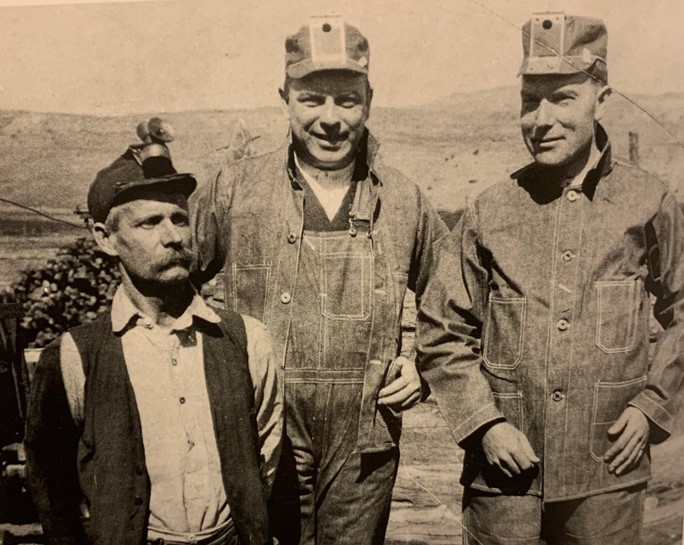
Becoming a Labour / Management Conciliator (Mediator)
Mackenzie King was swiftly promoted to the deputy minister for labour relations with a salary of $3,200. His meteoric rise was notable in the press of the time for example the Ottawa Journal mentioned him. In fact during a labour dispute in Valley Field, Quebec, Mackenzie King was sent by Wilfrid Laurier to defuse the situation. He manage to get concessions from both sides but as he was leaving, he also hung out with Liberal candidates and could be seen to publicly support Liberals stating that he hoped the Tory would lose in the 1900 election (after 18 years in power)… In the House of Commons, later Frederick Monk rose to accuse King of being a liberal political agent. Advocating on behalf of Liberal candidates is a no-no as a civil servant. Monk was vilified for attacking a civil servant but King learned a valuable lesson about even innocent public displays of partisanship being a harmful thing. The controversy likely brought King more attention, although Ottawa was a small town. Mackenzie King was a polite well liked fellow already.
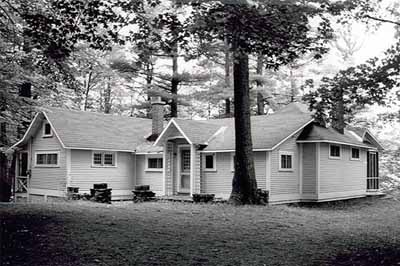
King bought property on Lake Kingsmere for $200. That’s about $3,500 in 2021 money….Canada was a dirt poor country with a meager population of under 5 1/2 million in 1900.
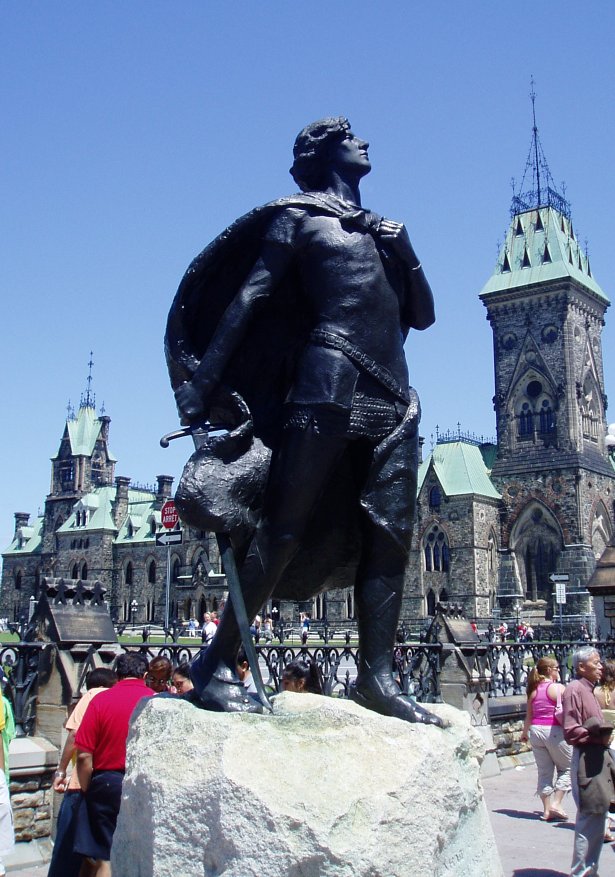
King’s best friend in Ottawa, Bert Harper fell through river ice and died. King was consumed with grief in his diary for the soul of a man that King loved. Doesn’t necessarily mean there is anything beyond platonic love for a friend here. Mackenzie King’s diary is full of effusive language about loved ones, pets and girlfriends. King had a statue erected of Harper, in the image of Sir Galahad, which still stands at Parliament.
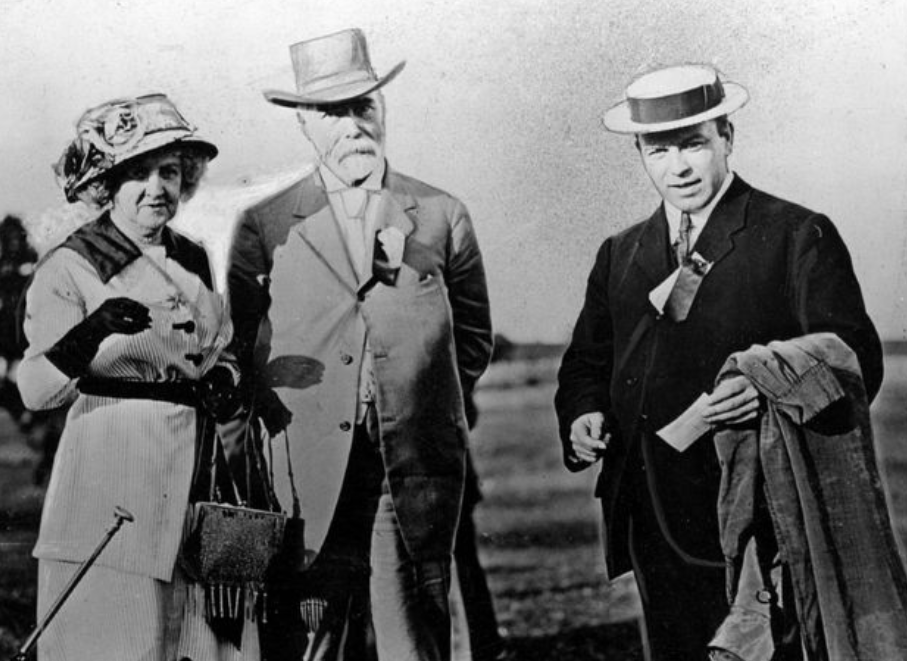
Focused on Work rather than Family
King had a platonic relationship with a married women Marjorie Hedridge. And it appears that it probably blossomed into an actual love affair at some point in the fall of 1902. However, there’s no actual evidence that there was a romantic relationship. Of course a lack of evidence does not mean it didn’t happen.
Eventually, by 1914 his relationship with Marjorie had shifted since his preoccupations with government were central. And she died by 1924 and he didn’t have much remorse for her which was a surprise to himself in his diary. Mackenzie King built the Kingsmere estate during this time.
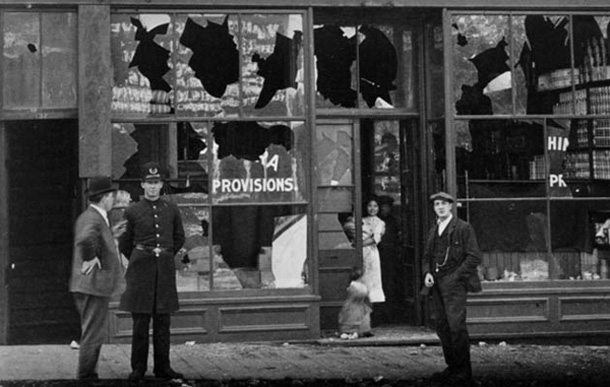
Embed Your Work in Law and Academia
- Labour relations were very poor in the early 20th century and union movements began to crop up as a response to management’s cold-bloodedness.
- King was responsible in part for the Industry Disputes Investigation Act passed in March 1907 which bans strikes, applies fines for strikers of $10 per day in public utilities and railways if there is an active government appointed investigation into those labour disputes. It was later put into question. Reality of life was more complicated than Kings idealistic theories. He believed that the greed of business owners and the radicalism of union leaders would naturallyrise up into conflicts. The better way was find common ground.
- In 1904, he had to convince the United Mine Workers of America, which had a local chapter in British Columbia, to give up their demand for eight hour days which was contrary to provincial labour laws and accept the pay of one dollar day and their own transportation to the mine located in Nanaimo. Mackenzie King had a knack for getting things done and so Wilfrid Laurier decided to invite him on the political side. He got King a by-election easy Liberal seat in 1908 and then made him Minister of Labour.
- MacKenzie King was advising Laurier’s team on the 1907 Japanese riots. Mackenzie King’s diary suggests he did have a Anglo-Saxon pride about him…In fact, MacKenzie King wrote a report on the riots which was submitted to Harvard as a PhD thesis on “Oriental Immigration to Canada.” By the standards of today, King was deeply prejudiced, as was the average Canadian then.
- In the early 20th century, newspapers were powerhouses of influence if you had support from one of the major newspapers you were ‘being made’ in effect. You’d get your honeymoon and then your teardown if you went against the muckrakers’ interests. The Globe and Empire / Mail, the Toronto Star, the Winnipeg Free Press…. these were the big papers in English Canada at the time.
End of an Era – 1911 Election
The 1911 election was Laurier’s swan song. The election was centred around concerns about liberalizing trade with United States as it was perceived by many to be a back door towards American conquest of Canada: protectionism being a critical component of Canada‘s existence. Tories had a war chest that they had built up. Mackenzie King lost his own seat and the corresponding Minister of Labour role. There was also an anti-Quebecer sentiment against Laurier and it was a good break from office for King….
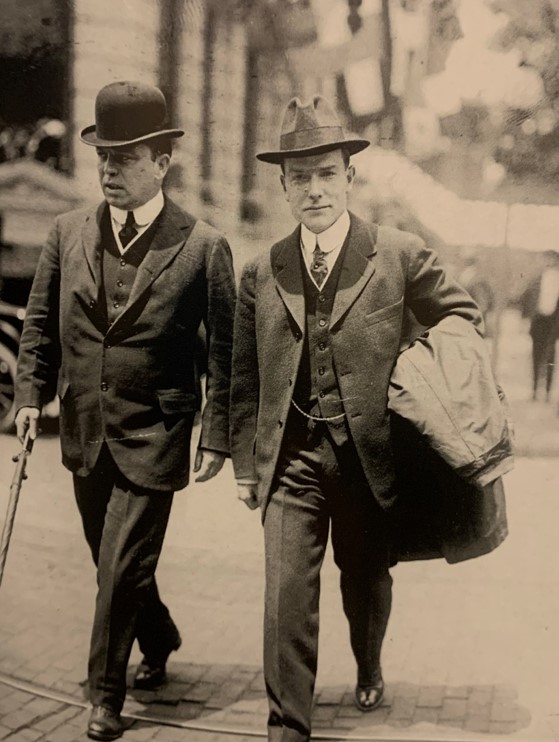
Leaders Don’t Always Get their Heir Apparent
Laurier was not supportive of Mackenzie King (aged 36) being made leader of the party as Laurier considered resignation in the early-1910s. And King opted not to become leader of the Ontario Liberal party as he was offered $3,000 per year but instead he pivoted his political skills into get a job with John D Rockefeller from 1914 to 1918 (avoiding military service). King would work on supporting Rockefeller’s union negotiations in Colorado for example. Mackenzie King used his union conciliatory role to support John D Rockefeller‘s goal and had the opportunity to stay on and join the board of the Rockefeller organization but he opted not to. Instead he wrote Industry and Humanity which appears to be a kind of mystic public intellectual book rather than a hard science or political science analysis of union negotiations. It had some strong ideas around “management and unions being allies rather than foes”. The book is a bit goofy, unclear and eccentric, having read some excepts, but shows the general principles that he would embed into the Liberal Party…
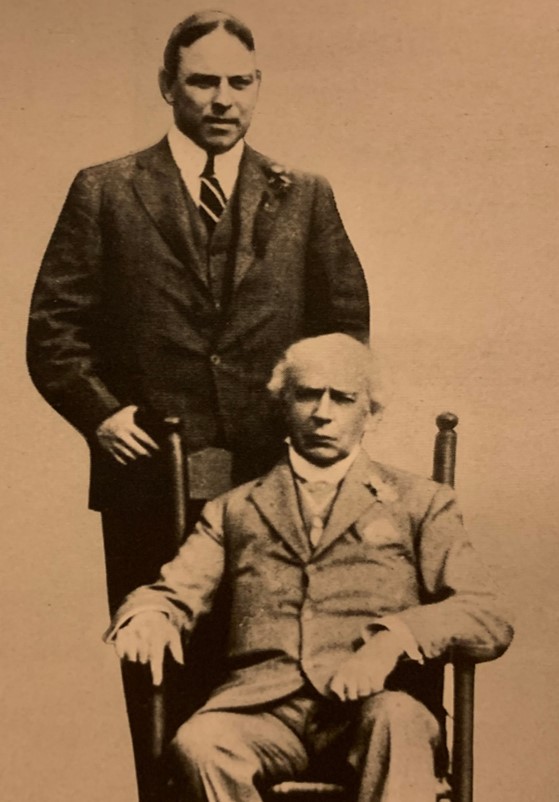
Opposing Conscription in 1917 – The Three Major Considerations in Canadian Politics…..
There is an old Ottawa joke “What are the three major policy considerations in Canada?” “First, there’s Quebec, Second, what does Quebec want and also, did I mention Quebec?” While still working for Rockefeller, King continued to support Laurier and supported the anti-conscription position that the Liberal party had split-up over, which in the short-run was harmful and led to a Union party victory in 1917, but would later catapult King into leadership and solidify support in Quebec which is central in Canadian politics historically and to this day.
Prior to Laurier’s death in February 1919, he had already made it clear (in King’s diary at least) that MacKenzie King was the preferred choice to lead the Liberal party:
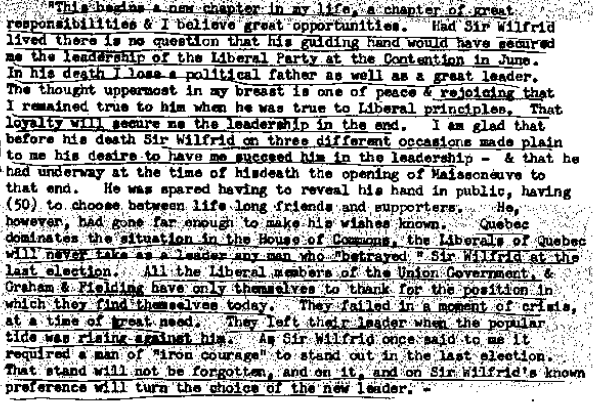
King had befriended many key allies in the Liberal caucus and met up with Lady Laurier who confirmed her view that King was her husband’s preferred successor (not that there were really any good alternatives).
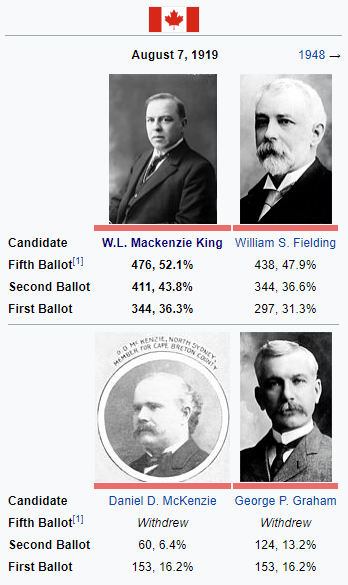
1919 Leadership Convention – Coalition Building Once Again
He basically embraced Laurier’s legacy of freedom and liberty, embraced labour interests (the party left), supported welfare reform and provided a fiery attack on Toryism, meanwhile Fielding was originally anti-confederation in the 1890s as premier of Nova Scotia, had got Montreal elites on his side, as well as provincial liberal satellites but was 70 years old at the time. Mackenzie King was not a charismatic leader but he was a tactician, bringing the pro-Conscriptions back into the fold + the progressive agrarian vote. He’s also just a really lucky guy, since winning that 1919 leadership might have been the optimal window he would have for getting the top job ie. leaders of the centrist political party typically absorb the vast majority of Canadian public preferences across language and regional divides, and Fielding would have a had at least one or two terms with MacKenzie King potentially being embroiled in some scandal in that intervening period….the unknowable counterfactual…still instructive.
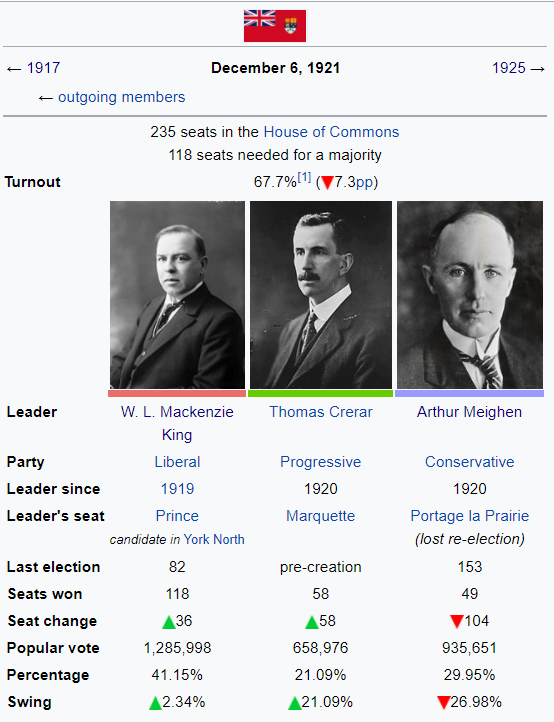
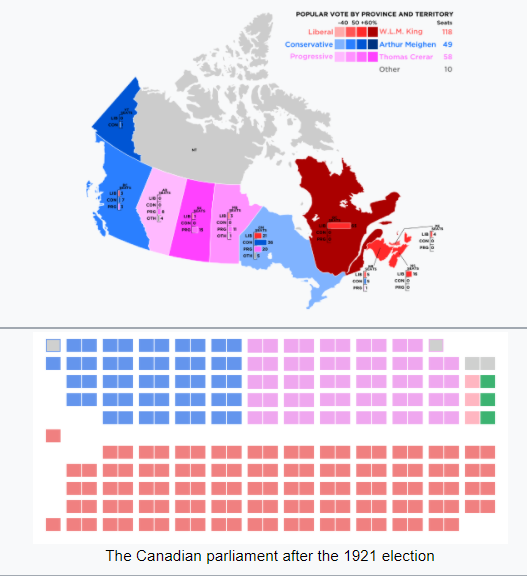
Tactician of Timing, Hugging the Middle, Balancing Interests, Owning His Own Story
- We quickly begin to realize, after he becomes the leader of the Liberal Party in 1919, that bland is grand. MacKenzie King’s true skill was to identify and know when to address a problem before it gets too large and when to let a problem fester. Everything needs to land on good timing, MacKenzie King was excellent at this…Or is that historical revisionism? Not sure. He also meticulously tracked all his experiences in a diary, the details of which was a useful reference point for his political strategy….and for historians to make fun of his peculiar lifestyle. He was obsessed with number patterns to say nothing of the seances, which is mentioned lower down this post..
- Extending his skill-set in conciliation, MacKenzie King facilitated bargaining agreements between different factions of the Liberal party in a political application of liberal corporatism (i.e managing interest groups in a negotiated distribution of political resources, rather than attempting to represent the vast ‘hard to know’ society at large). Typically, in elections King would try to make appeals to coalition groups as a good guess of the ‘mood of the country’ and then govern with corporatism. For example, he was excellent at working with Ernest Lapointe to ensure no policy would rattle the French Canadian electorate (using anecdotal deductive feedback, media feedback and eventually polling data) of course these were still good guesses. Then in legislation, King was keen to appease the Quebec leadership who wanted their parliamentarians to also be able to hold board seats while remaining MPs, for example.
- The Conservatives were dreadful at bridging white Anglo-Saxons with French Canadians. The only true coalition was in the 1980s under Mulroney….hence the Liberal party dominances in the 20th century.
- King was keen to co-opt people with extreme views into the Liberal fold and the fold of government. ‘Why wallow in opposition when you can make a difference? ‘ King wrote in his diary on October 15th, 1935.
- Mackenzie King was very vague in his word choices and not very interested in being committed without an exit option. He was hyper-pragmatic and optics oriented (never smiling in public during the war years of ’39 – ’45). Leaving doubt as to his positions was ideal in order to allow for triangulation (ie. capturing the support of a wider group of people rather than having a specific policy that people can either support or reject outright). This triangulation was especially helpful if he needed to win support from progressives or other fringe parties in a minority parliament. He was excellent at avoiding commitments and getting himself entangled in obligations that he couldn’t fulfill.
- His speeches had the distinction of being unclear but seemingly sensible. His statements that seemed like direct answers were frequently un-interpretable. He looked at things from a flexible pragmatic lens in his decision making and looked at things from a technical standpoint about what could be achieved from the public optics perspective.
- As PM, he exercises more power *proportionally* than a US president. He has full latitude to shape the agenda in the House of Commons. In Canada, the legislative branch is more of twig under the foot of a benevolent (and sometimes foolish) dictatorial prime minister. The right temperament is that of King relative to a Bennett or Meighen. And as such, by the time Canada becomes larger and thus more complex to administer, the need for a technical Prime Ministers Office emerged.
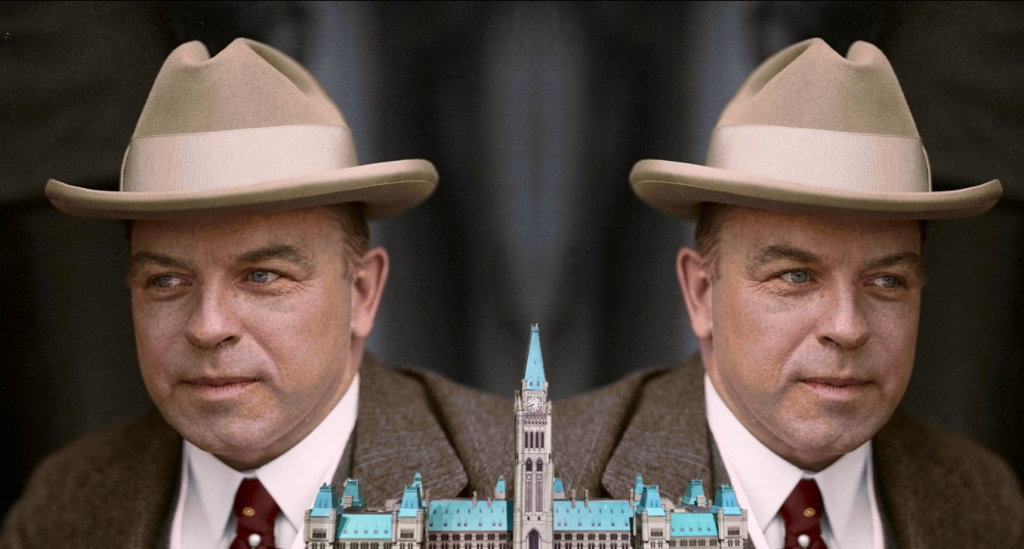
- King was a technical maneuver-er. When the crisis at Chanak broke, indicating that Canada might be required to raise troops for the British Empire, King said such a decision would require parliamentary approval…and since parliament wasn’t in session, that would be tough….adding that the matter wasn’t important enough to get parliament together.
- As mentioned above, MacKenzie King was accused even by his own caucus of not being capable of making a direct statement and delaying decisions: an evasive tactician. As a Prime Minister, you don’t have to make appeals to those below you in the pecking order. He went uncontested in cabinet often. Unlike in the legislative process of the US government which has three strong branches of government, Canada has the Prime Minister (now augmented with the PMO), the legislative branch (more of a twig) which is largely beholden to the Prime Minister and the judicial branch was less activist relative to the US, for example.
- Unfortunately, the detail that you would expect from biographers is really not there, we don’t have anyone like a Robert Caro in Canada to give the level of detail and insight that a study of King deserves. Also everyone involved has passed away. All we have is an unreliable narrator in the form of MacKenzie King’s diaries which are a kind of Wacky Willie’s World talking to his dead parents on the regular, feeling his mother’s presence every evening and generally putting things in a positive light for himself as a diary should.
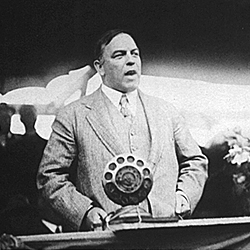
His first term? Well, MacKenzie King implemented the Chinese Immigration Ban of 1923 which sadly reflects a strategic block of voting interests in BC at the time.
In the 1925 campaign, MacKenzie King was not the ideal radio star. But because the medium was relatively new many were enthusiastic supporters even saying that he had a “pleasant voice”. Listening to old reels of King’s presentation he actually has a high-pitched whiny type voice and very little in the way of charisma. He exudes the characteristics of a skillful, quiet bureaucrat, tactician.
Mackenzie King in his diary claims that his dead father was in the crowd at one of his rallies and was inspired such that he would surely win the 1925 election. He also had dream sequences involving his brother Max that he believed meant certain victory.
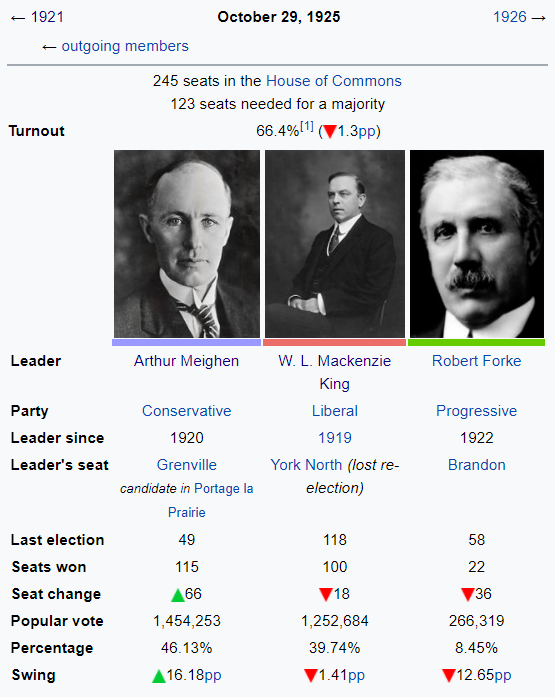
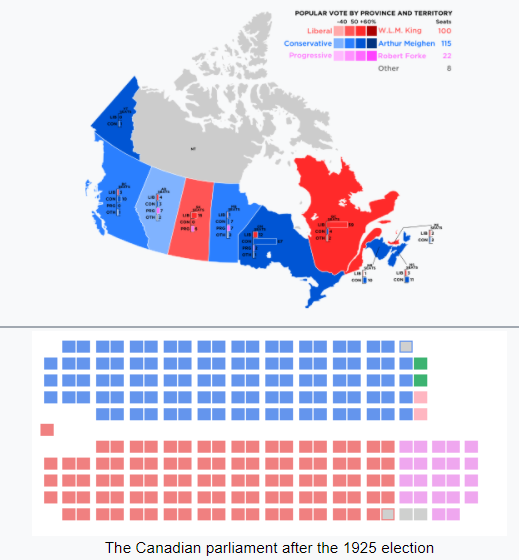
The Rational Bully versus the Senior Dignitary
With the outcome of the 1925 election in which the Tories had more seats than the Liberals, Mackenzie King went to Lord Byng to see if he could form a government with fewer seats but with a viable coalition with the ‘Progs’. This was not such a stretch since King seems to have considered the French Canadian Liberals to be a coalition with English Canadian Liberals throughout his first term, stating for example the “Bank of Montreal…nearly put 1 million dollars to elect 10 Fr.CanLiberals, to hold the balance of power, and get rid of Meighen.”
The person who can ‘command a majority’ should be the PM was King’s thinking. King had even lost his own seat in North York in the election and all of his major cabinet ministers also lost their seats. Lord Byng had mentioned in 1924 that he was not a constitutional expert and would be giving Mackenzie King full latitude in any decisions as a docile Governor General. However in this post-1925 election meeting, Lord Byng’s affectations had changed.
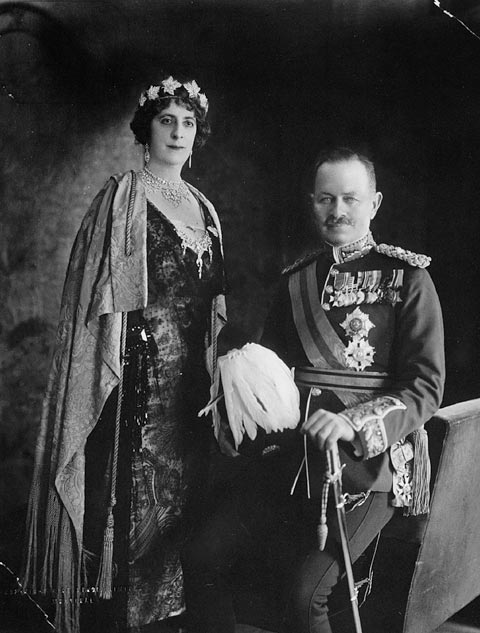
Sitting in front of the fireplace at the Government House, he gave Mackenzie King three options:
- 1) Dissolution and another election immediately which the public would not appreciate,
- 2) Mackenzie King resigns and Meighen (with the largest block could become PM) or
- 3) Mackenzie King continues as Prime Minister with a coalition.
Lord Byng suggested that having to kow-tow towards the Progressives and JS Woodsworth would be seen by the public as holding on to power for power’s sake. Mackenzie King was quietly outraged that Lord Byng might actually voice his opinion on the situation when it wasn’t constitutionally warranted based on King’s constitutional experts: ‘he had no opinion.’ The seat count was such that Meighen would not be able to form a stable government, either. Meighen had been rejected generally, as far as King was concerned. And MacKenzie King seems particularly concerned that Meighen would have access to the ‘election machinery’ as Prime Minister, which implies some level of fraud in vote counting? Or simply the incumbents advantage?
MacKenzie King went back to Kingsmere after the first meeting with Lord Byng and drafted a letter of resignation but instead insisted on staying on and didn’t complete that letter. He returned to Lord Byng’s house the next morning and said that Byng was either to “Accept” or “Reject” the decision of the Prime Minister. The governor general had “no right to express his opinion” about who should be given the right to form the next government.
Lord Byng accepted the situation with the proviso that Meighen would be allowed to form a government before King could snap another election…..King said sure, later to reneg on that commitment, a bait & switch that kept King in his job.
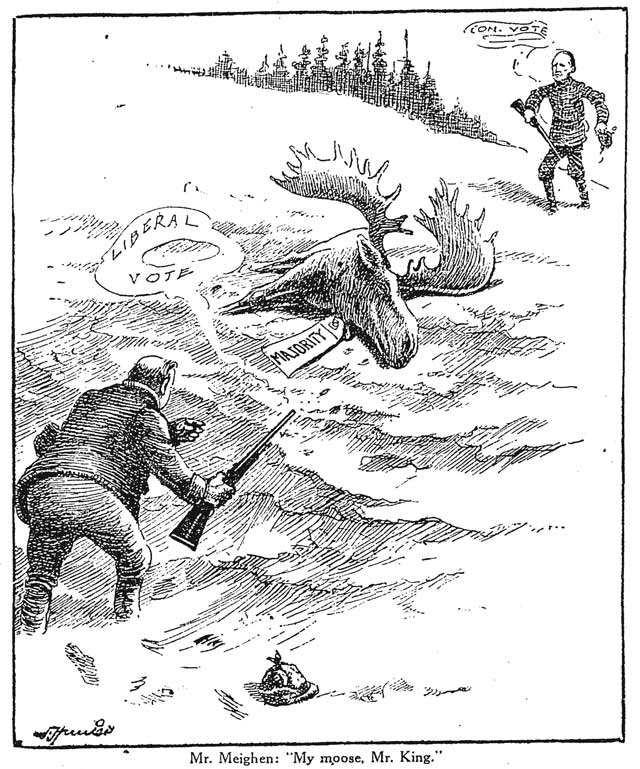
Hindsight Meighen was a Goof or Unlucky?
Meanwhile Meighen had said publicly that the general will should be put to the people he didn’t necessarily want a ‘referendum’ but his statement was considered “heresy” for him to ask for a general election on the basis of what had transpired.
MacKenzie King’s steely strength and confidence during this first part of the constitutional crisis, known as the King-Byng Affair. And it could be attributed to his séances with his Brother, Dad, Sister and Mother whom he spoke with on the regular beyond the grave…strengthening his drive to hold on to power.
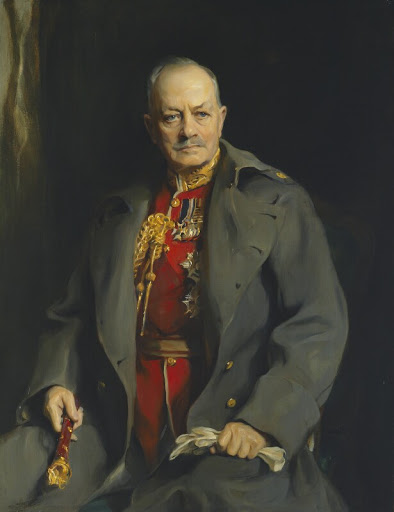
So, MacKenzie King was able to stay on without having a parliamentary seat. He was mistreated by Lord Byng at a hockey game in Toronto where Byng publicly snubbed King but the balance of power remained with the progressives. Mackenzie King believed that Meighen and the Tories would not be able to hold on to government with the number of seats they had. Their ideological rift with the progressives would not allow Meighen to govern for long. King knew that JS Woodsworth did not want to work with the Tories and he used that to his advantage.
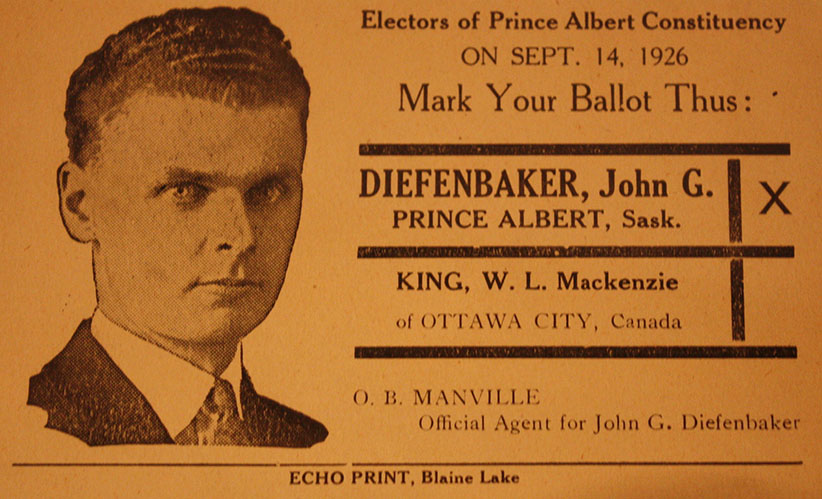
MacKenzie King was able to get a seat in Prince Albert, Saskatchewan as it was the easiest seat to win in Canada for a Liberal…at the time.
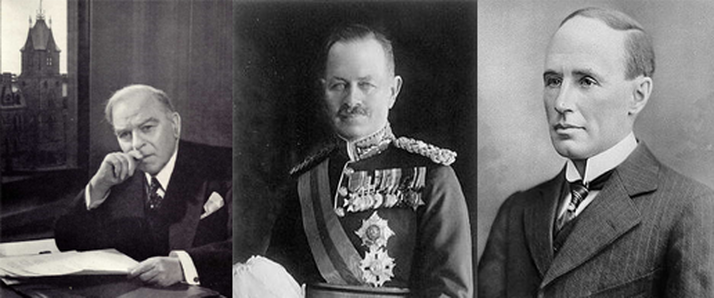
King-Byng Affair – June 26 to 29, 1926
In June of 1926, MacKenzie King was not able to pass a tough bill and went to Lord Byng to request a general election. His Cabinet colleagues agreed with his analysis below:
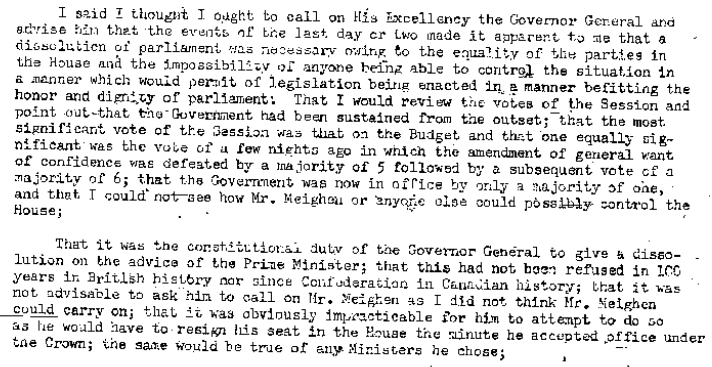
At the Government House, MacKenzie snacked on bread and butter and sipped tea while explaining to Lord Byng what he wanted to do:
- An amendment to a bill (relating to the Customs Department scandal) had been defeated on a majority of two against the bill. With an adjournment in which the government was sustained by a vote of one, it was not sustainable if a single government parliamentarian was not present for every vote.
- King’s solution was a dissolution, as “the only means of satisfactorily solving the situation.”
- Adding that Meighen “could be sent for” but was unlikely to be able to gain the confidence of the House.
- That King did not think Lord Byng could “afford to refuse me dissolution and grant dissolution to anyone else; that should he refuse, this circumstance would become a factor in a general election and might do himself personally,…irreparable harm, that it would be a kind procedure that would be unconstitutional and would not be approved in any part of the Empire.”
- That before, you (Lord Byng) say anything, consider what I (MacKenzie King) have just said.
Lord Byng’s response was :
- King had had his chance and that the machinery of government should be given to the other side for a chance at government.
- Byng added last time, MacKenzie King had said “It was for parliament to decide” Byng repeated the phrase several times and said that the parliament had decided against King.
- King’s argument that he could carry on was in direct contradiction to his prior statement and that he thought the country was against King and that he, King, was holding on unduly…
Byng’s role as governor general was to do whatever Mackenzie King advised of him, as far as King was concerned, but Lord Byng wanted to give Meighen a chance, despite that. Over a weekend of successive meetings from June 26 to June 29, Mackenzie King pushed his case, he even threatened to get the British to intervene, ironic given MacKenzie King autonomy drive for Canada in relation to Britain. In one of the arguments Lord being said “you love power” MaKenzie King explained that “there was no man for whom I had greater love, affection and regard, and that it was to save him from a very serious error, as well as to maintain a great constitutional principle, that I was advising him to take this course.” And that giving Meighen the chance to govern would cause serious injury to British / Canadian relations. Lord Byng nauseated said “I am an old man with very few years left and you’re a young man with many years ahead of you. Could you give me a little bit of a break here?“
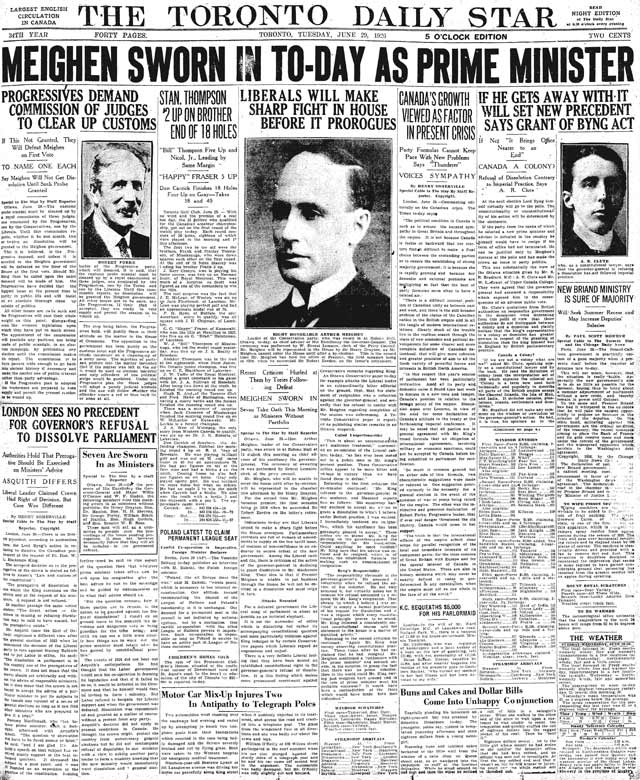
In one of the biggest miscalculations in Tory political history, Arthur Meighen foolishly accepted the chance to form a government from Byng and he did a poor job of it as Mackenzie King expected. Meighen had been for conscription and high tariffs which were diametrically opposed by most French Canadians (+ the Montreal elite). He was not able to hold onto power for more than 80 days but then had to call an election for September 1926. On the campaign trail, Meighen was against old age pension at $240 and publicly ridiculed a senior citizen who suggested that he should have such a pension according to John Diefenbaker, who was at that rally, Meighen certainly won the debate but lost the crowd. Meighen was a hyper principled ideological guy and that hurt his chances.
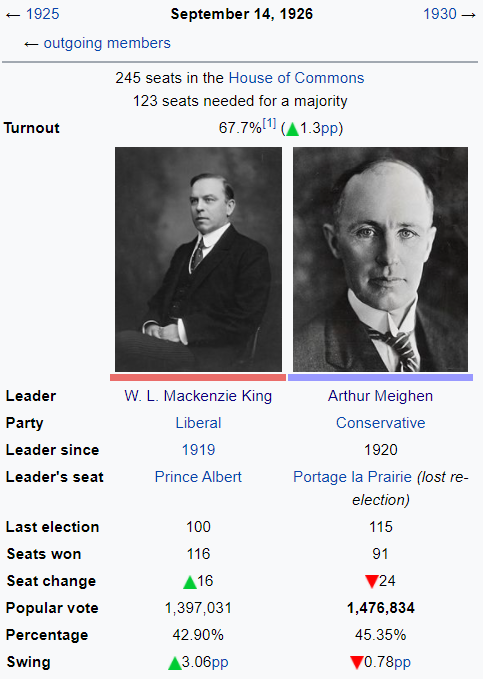
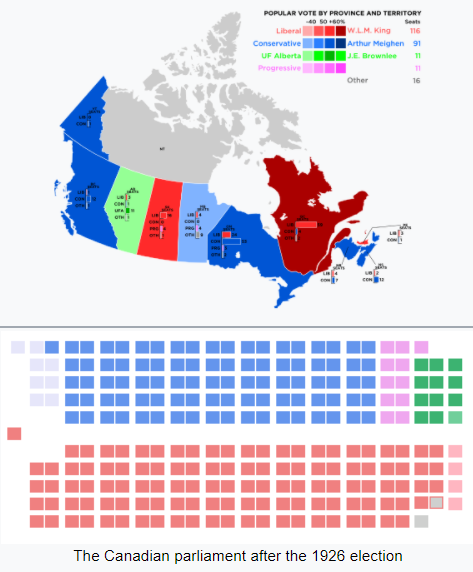
1926 Election – 80 Days in the Wilderness / Opposition
MacKenzie King ran on an anti-Crown ticket capitalizing on his fight with Lord Byng. He defeated John Diefenbaker in Prince Albert and the Liberals won a 116 seat majority. And he knew he was going to win because his mother had told him in a séance.
He was happy to see Meighen go as he believed he “lowers the whole tone & standards of public life“

From that incident, Lord Byng and his wife viewed Mackenzie King as a “liar and a traitor.” For basically making her husband look like an idiot.
MacKenzie King continued to believe that his family members were guiding his hand and supporting him in every way. He was back in power after a stressful year of uncertainty that he navigated with the confidence of someone who thought spirits were protecting him.
MacKenzie King wanted autonomy from Britain, he didn’t want to be held accountable for British treaties. He established an embassy in places like Washington sending Vincent Massey as their first representative. MacKenzie King’s issue was the connection to Britain not that it should be severed but that Canada should be given far more flexibility and not be prevented from its own foreign policy.
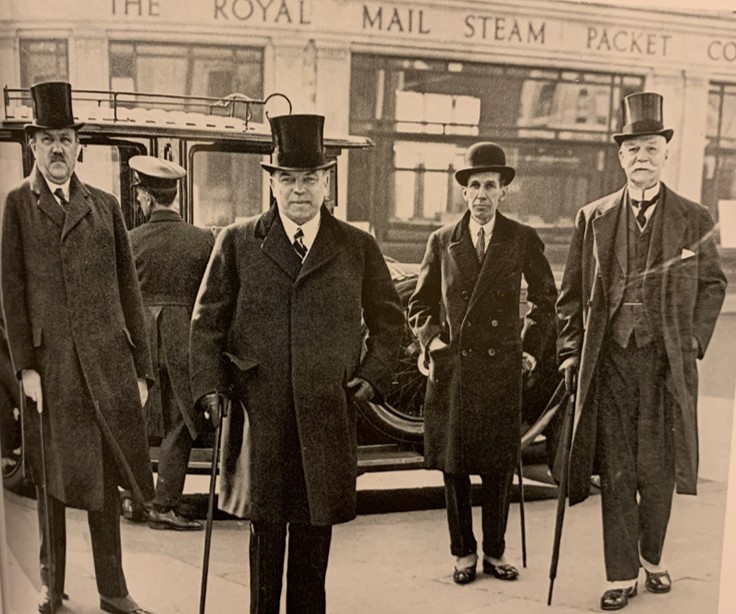
Surround Yourself With People Who Can Compensate For Your Faults
MacKenzie King did not speak French at all. Shocking but true. Ernest Lapointe (de facto co-Prime Minister) became a critical support for Mackenzie King from 1921 on and through this period, the federal government had a lot of war debt and had nationalized the railways and therefore was not able to help out the provinces. As the financial crisis in 1929 materialized, Mackenzie King anticipated difficulties ahead for his re-election in 1931 which would be the latest he could pull the trigger on having an election (typically, you would do that if you knew you were a lame-duck Prime Minister; better to snap when convenient to you).
On economic policy, Mackenzie King was effectively an advocate of a variant of the laissez-faire capitalism. He believed that private enterprise was the root of all activity, did not accept that government should function across all areas of life. And as such he did not also believe that the federal government should intervene in provincial funding and budgeting. In a famous speech in the house of commons Mackenzie King (having already had three glasses of wine from a luncheon with Premier Hepburn of Ontario) made shocking statements in the House of Commons:
- 1) unemployment is the responsibility of provinces and municipalities; (true)
- 2) the unemployment emergency is not real, not evident; (wrong)
- 3) as the Prime Minister, he would never give any money to Tory governments not even a five cent piece; (rhetorical)
- 4) maybe he would give some money to some progressive premieres: (flippant)
- 5) at the federal level we have other priorities.
The House of Commons erupted in anger over this statement. And he later, in his diary, regretted this greatly and realized that he was not prepared for this new challenge. This statement would come to haunt him as he handed over the reigns to RB Bennett and made a joke about it with himself…after the election:

He dissolved the parliament in July 28th, 1930 because he believed that there was a downward trend economically although he wasn’t sure he believed that there would be an economic crisis off of the back of the US financial crisis ‘29….
The Liberal Party infrastructure was quite weak from 1926 to 1930, it had atrophied over the years. And the conservative campaign was aggressively mobilized and technologically savvy. And their leader was not Meighen, it was RB Bennett who “promised to use tariffs to blast away a hole into the markets of the world.” And crowds cheered him on. Mackenzie King, in his diary, believed that RB Bennett didn’t make much sense as his style wasn’t very appealing and King felt confident that he would defeat him.
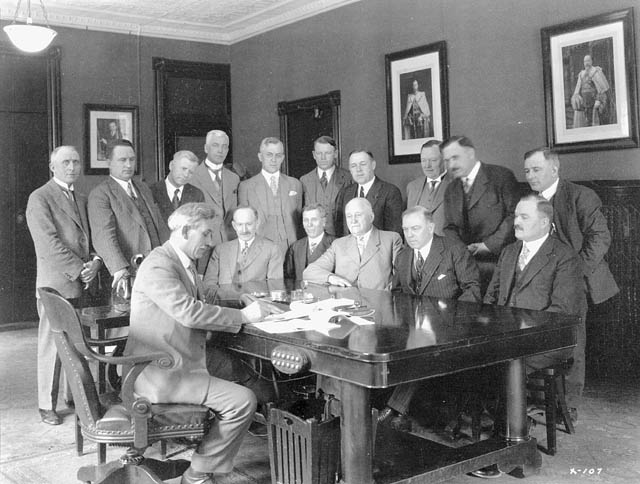
Old Age Pension in 1928 was the signature legislation of the mid-to-late 1920s.
In terms of tariffs, in Western Canada, the Montreal high tariffs were beneficial to Montreal meanwhile Western producers would have to compete in the global market. So on the one hand, furniture had to come from Canadian manufacturers in central Canada even though there were producers in places like Minnesota and Washington state that could just as easily sell their products up north if there weren’t tariffs. The price of nationalism was that it served the interests of the existing population centres at the cost of new population centres.
The night before the 1930 election, MacKenzie King was somewhat confident in his diary entry:
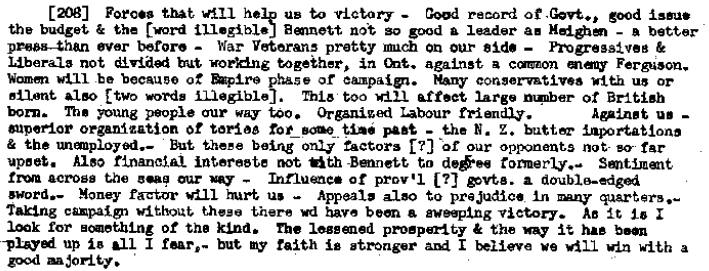
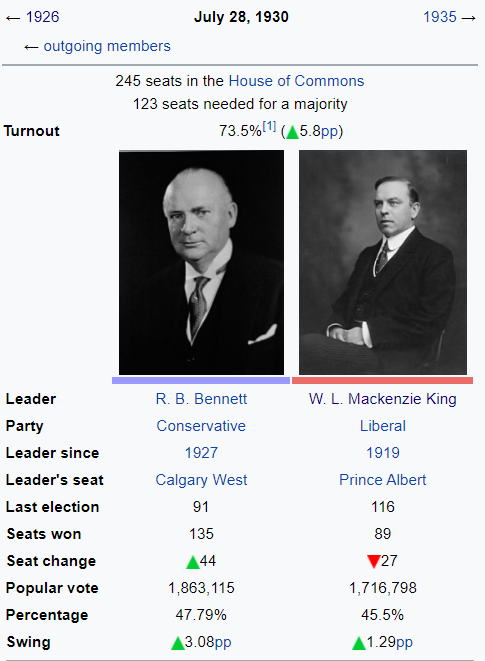
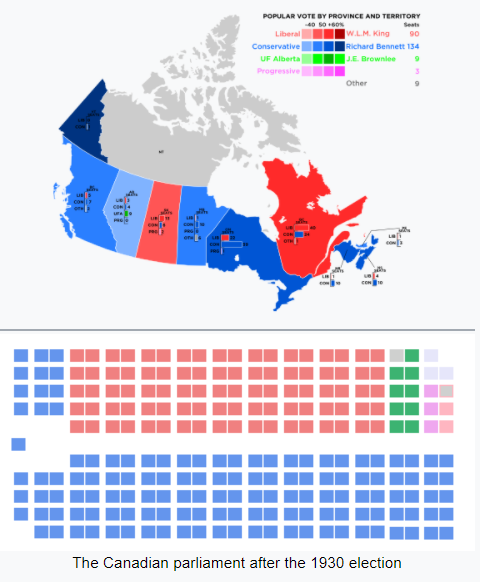
1930 Election – Lucky Streak Continues
Election was held. MacKenzie King lost to the Tories 135 seats with 47.79% of the vote in the Liberals 89 seats with 45.5% of the vote. Mackenzie King was shocked but he also knew that RB Bennett would struggle to solve for unemployment:

In analyzing the defeat, King was surprised by the results in Quebec where the Tories had picked up 24 seats, an example of the swings that characterize a disaffected Quebec electorate. At any rate, this outcome, in hindsight, turned out to be a lucky reprieve for Mackenzie King.
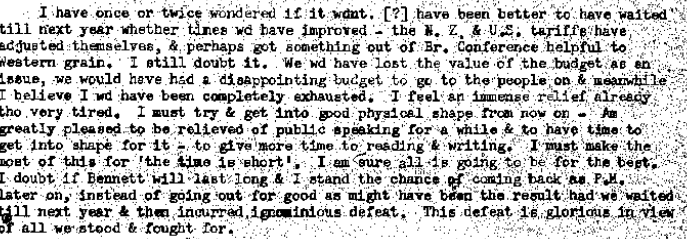
In response to the failure of that federal election, Mackenzie King created the National Liberal Federation noting that “socialism is not the answer but I can see how it attracts the well-intentioned person.“
There was a residual scandal, the Beauharnois scandal in which there were issues that he had to answer for but Mackenzie King was able to weather 1930 to 1935, as the leader of the opposition.
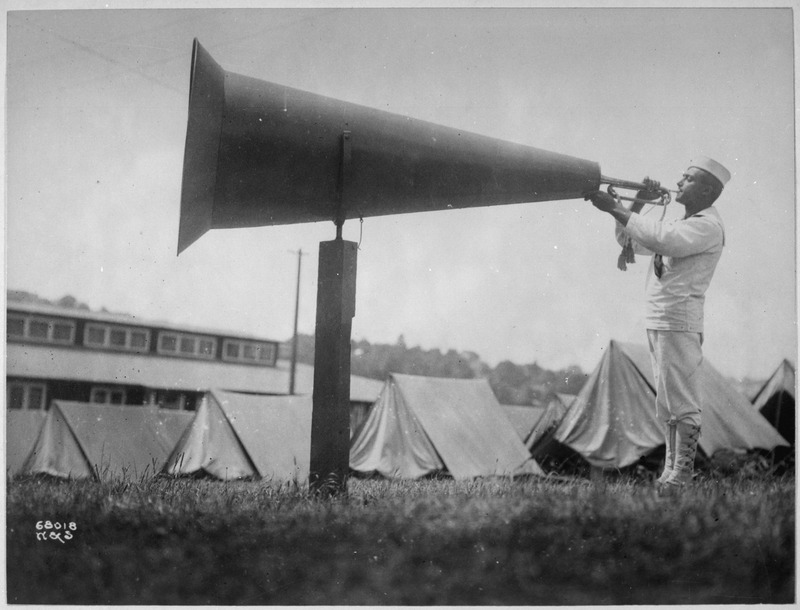
Being the leader of the Opposition is not a fun job because you basically have to oppose everything and complain a lot. RB Bennett got the credit for the Statute of Westminster, 1931 which was annoying to Mackenzie King since he had done the leg work with the Balfour Declaration. Bennett imposed tariffs which undid a lot of the trade liberalization that the Liberals had initiated over the last decade, except for anything effecting the Montreal elite and contra-the West. The newspapers were turning on Mackenzie King, one article said he had become ‘withdrawn and intellectual of life of a recluse. He is out of touch with the trends and with the people. He is living in a groove as deep and narrow as a political grave.’ – Winnipeg Free Press, 1931
As the depression persisted, RB Bennett was a one-man government with no delegation skills. His popularity plummeted and he fired Harry Stevens who was big on price gouging. Stevens formed the Reconstruction Party which split the vote between conservatives in the 1935 election. RB Bennett’s fireside chats echoed what FDR was doing. Mackenzie King felt that there were many platitudes in Bennett’s speeches and the culmination of Bennet’s failure was in the Regina riots which was an anti-relief camp riot.



Séances…What to say about the Séances…
As PM, he lived in Laurier House, which was gifted to him by Lady Laurier a few years after her husband’s death. It was in that house that he communed with the dead.
- MacKenzie King lived in his own head as we all do. Except, he believed that he could access the afterlife. While he regretted not having a wife and children who might have normalized his eccentricities, he instead turned to spiritualists and mysticism to connect with those he loved who were already long gone: ie Wilfrid Laurier, Shakespeare, Jesus, his Dad, his Mom, his Dogs, his Sister, his Brother….He did this self-soothing by relying on séances for his connections to loved ones long gone. He believed in it, and that’s all that really mattered. It worked for him. He was surrounded by his loved ones and they didn’t ask him for much since they were spirits: it’s a win-win.
- He had three dogs named Pat, who’s ghosts roamed Laurier house.
- He saw messages in shaving cream from the after life.
- He worked with mediums, often women, who told him what he wanted to hear.
- Just as having waking dreams where you see ghosts, it doesn’t make you crazy, he experienced hallucinations that he believed were real (a significant difference from most of us, but it helped him deal with the pressures of his job).
- At one point, he actively bragged to the Governor General about talking to FDR “last night”…months after FDR had died. He wasn’t all that shy about his séance ways but it was after he passed away that it become public knowledge.
- And there is something creepy about talking to your mom so frequently. Take any random diary after her death, and MacKenzie King will talk about feeling her presence. His mother pushed him into politics and he felt indebted to her.
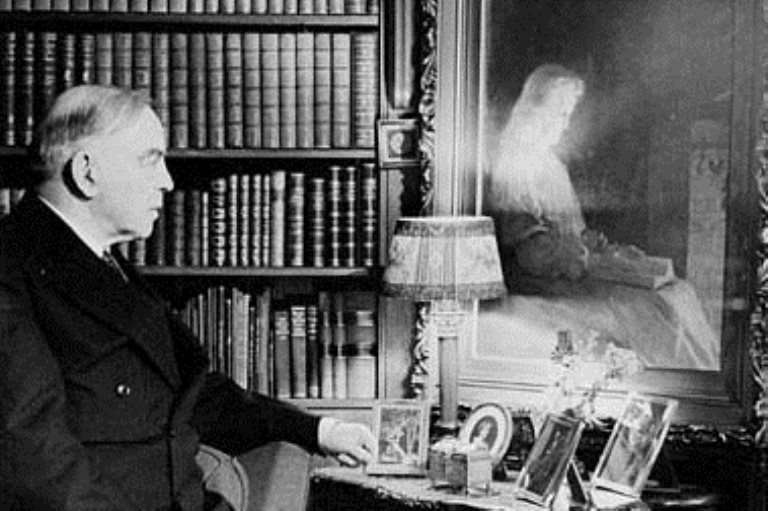
Government In Waiting
MacKenzie King was getting tired as he was now entering his 60s. Maybe it was time to pack things in? Fact is, Mackenzie King attracted a skilled cabinet and the Liberals appeared to be the government in waiting as RB Bennett continued to perform poorly throughout his term. MacKenzie King did not have a leadership challenge because it wasn’t as if the expectation was that the Tories were going to have multiple terms early on. They had inherited the worst depression in modern history and a federal government with limited revenue and a philosophy that was laissez-faire, Bennett wasn’t the right guy for that time. Unlucky.
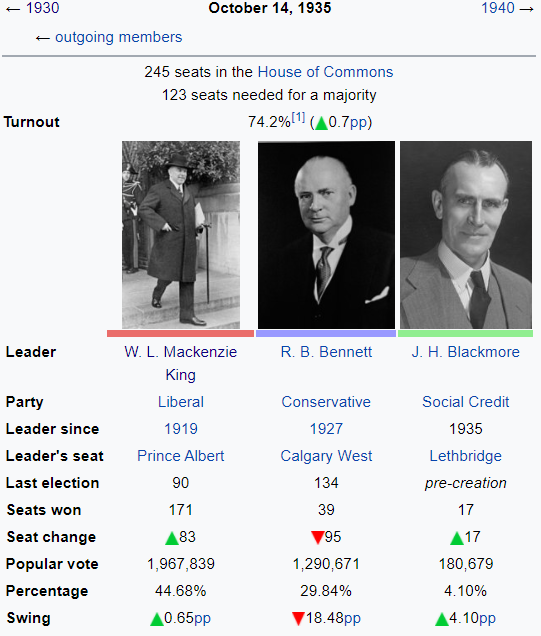
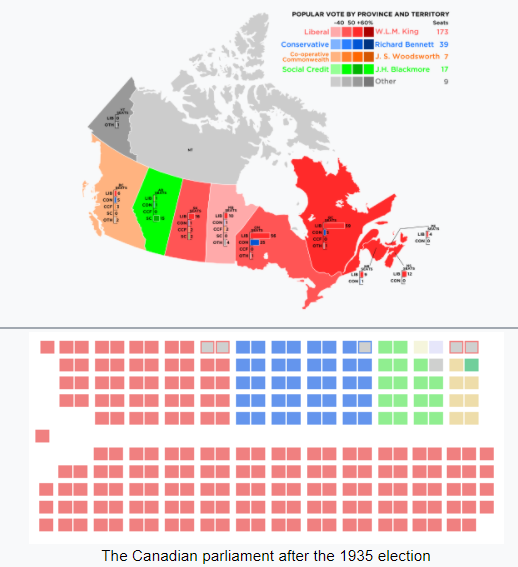
1935 – Return of the King
The 1935 election saw McKenzie King return to power. In their post-election meeting RB Bennett said Bennett knew he was going to lose a longtime ago.
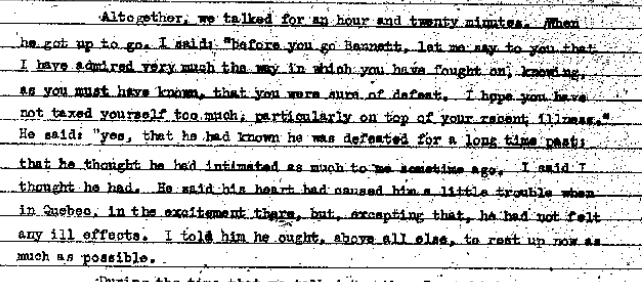
Mackenzie King had strong opinions about Edward the 8th and Wallis Simpson but kept those to himself and maintained a very diplomatic position. He never answered questions. When it came to provincial governments lacking capital, Mackenzie King was not Keynesian in his strategy as that hadn’t taken root.
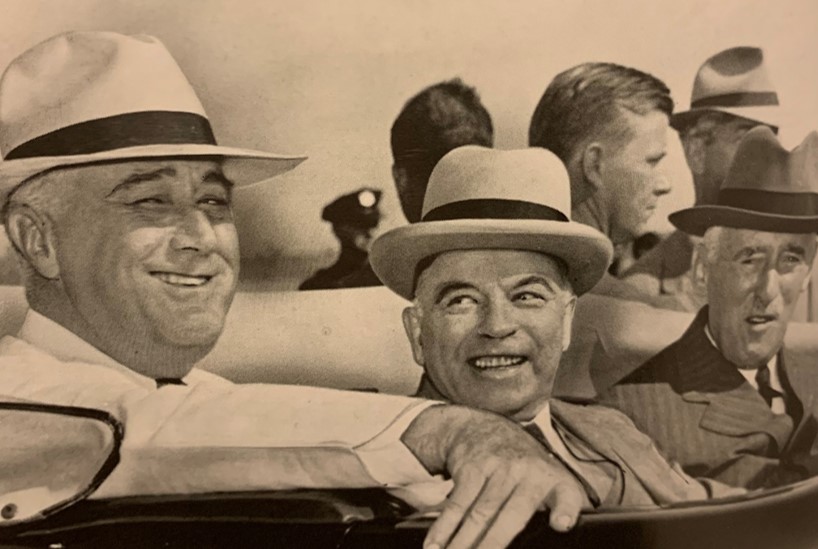
His relationship with FDR was a positive one where he attempted to negotiate a better relationship. Unlike Mackenzie King, FDR was surrounded by people who had axes to grind in their own ulterior motives. And so FDR befriended Mackenzie King as an outsider.
Back in Canada, Mackenzie King had three premiers to contend with:



Alberhart of Alberta: who was a social credit premier who advocated for a new form of capitalism which did not align with federal fiscal policy. As a result, Alberhart‘s policies were not able to come to full fruition but likely lacked rigour.
Duplessis of Quebec: the Union National under Duplessis had imposed a padlock law in which businesses could be shut if they had communists within their ranks. Unlike Alberta, where Mackenzie King was happy to shut down Alberta‘s unique monetary-esq policy approach, he was not willing to threaten national unity with Duplessis.
Hepburn of Ontario: was also a major threat to Mackenzie King as a possible alternative liberal leader. Hepburn opposed the GM strike in Oshawa and had a theory that Mackenzie King was undermining him when it came to the Niagara River hydroelectric dam and felt that Mackenzie King and FDR were thwarting him and his agenda.
Duplesis and Hepburn created an ‘unholy alliance’ with the explicit aim of ‘getting rid of Mackenzie King.’
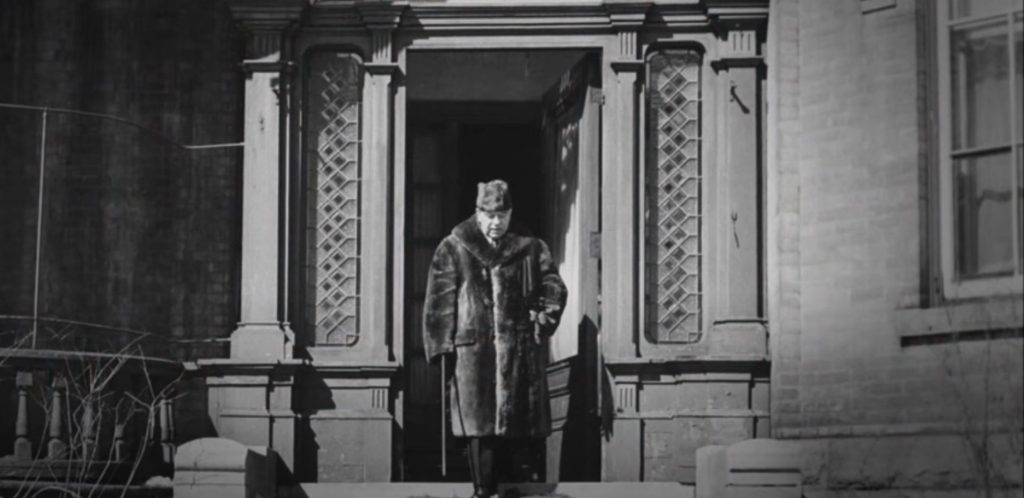
Bland Works – An Example
Here’s an example of MacKenzie King speaking off the back of a train. Riveting stuff. As a technocrat bland really works for MacKenzie King.
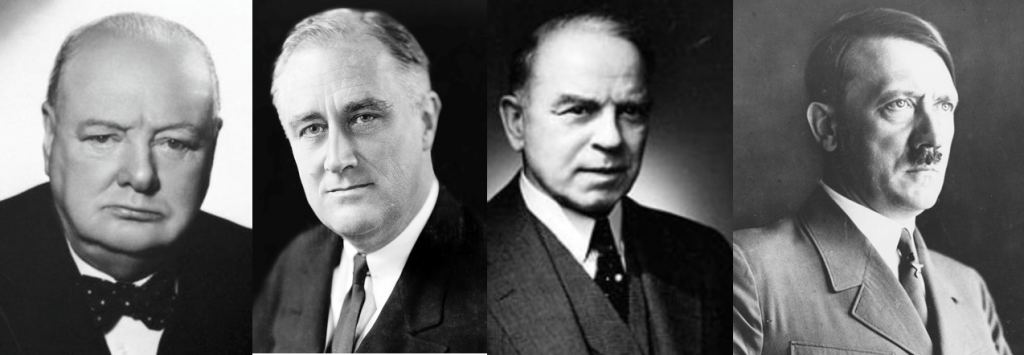
Vision of a Mediator Between Great Powers
Mackenzie King showed interest in Hitler’s leadership. But he was not interested in putting Canada in an ‘untenable position’ in which he would have to side with the British Empire against the German dictator and strong man. Running roughshod over parliamentary deadlock and concession/compromise was part of the appeal fof King. King aslo felt he could be mediator, just like his prior work with labour/management disputes and government. In 1937, on a chance meeting in London, Mackenzie King met von Rippentrop and was invited to Berlin on the basis of his ‘agreeable’ views. MacKenzie King emphasized that he was born in Berlin, Ontario and he positioned himself as a potential uniter between the United Kingdom, United States and Germany as a kind of Canadian emissary.
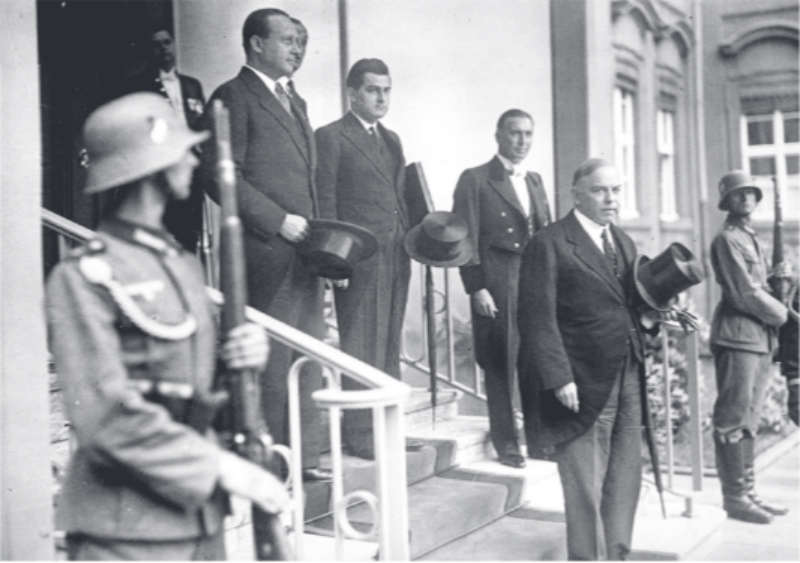
On June 29 of 1937 after meeting Goering at the Berlin zoo (delivering some Canadian wildlife), MacKenzie King suggested to Goering that “if at any time we feel this freedom to be imperilled by any aggression towards Britain our people will almost certainly respond immediately to protect our common freedom.” When Goering figured King was somewhat agreeable, he set him up for a meeting with…believe it or not…Adolf Hitler.
Mackenzie King and Hitler had a 30 minute meeting that went on for over an hour and 15 minutes. Mackenzie King wrote 7,400 words, a moment by moment account of his meeting with Hitler. He felt that:
- Hitler ‘was a visionary’ and ‘dangerous’ but Mackenzie King was impressed that Hitler was “self educated” and even said Hitler was “sweet” . (Diary, June 29, 1937)
- That he was a recluse like MacKenzie King… (Diary, June 29, 1937)
- That King could understand why Hitler was so popular as “he was empathetic…” (Diary, June 29, 1937)
- Hitler appeared to be “a man of deep sincerity and a genuine patriot.” (Diary, June 29, 1937)
- He wrote, “My sizing up of the man as I sat and talked with him was that he is really one who truly loves his fellow-men, and his country, and would make any sacrifice for their good.” (Diary, June 29, 1937)
- King saw a lot of himself in Hitler, “As I talked with him, I could not but think of Joan of Arc. He is distinctly a mystic …. He is a teetotaller and also a vegetarian; is unmarried, abstemist in all his habits and ways.” (Diary, June 29, 1937)
MacKenzie King could not tell that Hitler was an idiotic evil villain despite prior behaviour like the Nuremberg laws etc because (not certain) King wanted to avoid war and thought he could persuade world peace, politics being the art of the possible, most potent when unexpected (maybe this Hitler will involve King in a world peace treaty? In the next few years…’38 or ’39). In their conversation, Hitler explained that unifying German speaking people was a priority (ie. invading Austria and Czechoslovakia). Mackenzie King probably, it’s not clear, underappreciated the lebensraum concept of more space for Germans.
They talked about Hitler’s theories relating to the Treaty of Versailles as unjust, the need to re-armor Germany and the horrible consequences of war….Hitler said that “I get my support from the people and the people do not want war”. The general concern was that Germany was re-arming not just for deterrence….

King left Hindenburg Palace with a signed and framed photograph of Hitler….He left Berlin saying he didn’t care for the militarism….Later when Chamberlain completed his “peace in our time” deal/gamble in the Munich Agreement, Mackenzie King described it as” a great day of rejoicing.” As a Prime Minister who didn’t like confrontation, it makes sense that MacKenzie King wanted to appease or mediate between Britain and Germany, not only for macro-level reasons but also to avoid another conscription crisis that could split the Liberal English and French factions….although perhaps that’s a stretch, he wasn’t expecting war.
In mid-1939, Mackenzie King was invited by Hitler to come to Berlin to possibly establish a peace treaty. The Canadian government was not able to book that event until November 20, 1939. But that meeting might have not been serious, anyway. Mackenzie King sent a cable to Poland, Italy and Germany asking if they would cease hostilities only Poland and Italy acknowledged the cable had arrived. This implied that Canada would be implicated in legal interventions therein and that the Nazis were up to something.

On September 1, 1939, Germany invaded Poland. MacKenzie King listened to mediums and went into a seance where it was claimed Hitler was to be ‘shot by a Pole’ that day and / or that Hitler was going to die within the year. In parliament, Mackenzie King made the declaration that war against Germany was certain on September 10 stating that ‘Canada was coveted by the Germans’ and that they were sure to come after us as well ‘inaction was support for Hitler’ and he got a standing ovation with only a few MPs including Woodsworth rejecting and / or resigning on the basis of the decision.
MacKenzie King returned to the bunk….Shockingly Collections Canada deleted more legible summaries of MacKenzie King’s diatiers, but it’s on the WayBack Machine: King and Germany
War-Time Prime Minister Gets Some Benefit of the Doubt
Mackenzie King implemented the War Measures Act which allowed the detention of illegal aliens or people deemed enemies of the country and or suppression of the press. Mackenzie King believed that Chamberlain’s Munich Pact was the trigger for declaring war on Germany and he was glad that it had been created (a rationalization) to establish when the line was to be crossed. In the newspapers, there were several calls for McKenzie King to resign and be replaced with MacNaughton or another military specialist.
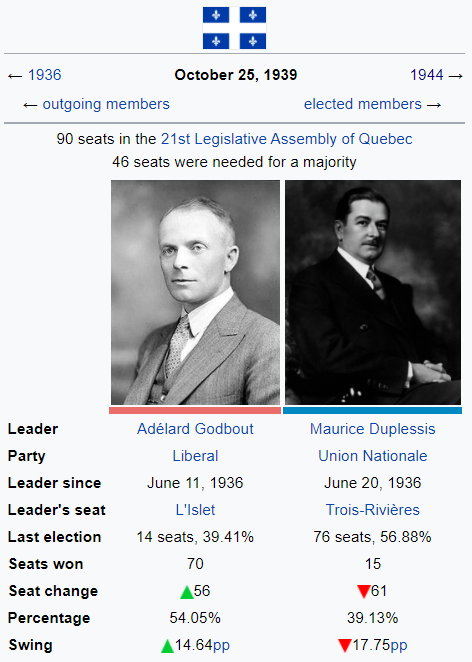
Duplessis saw the war as an opportunity to strengthen Quebec bargaining power in confederation or leave it and called an election. He sought to take advantage of the situation on an anti-conscription position sensing that this was yet another war in which conscription would be foisted on the Quebec people. The public basically believing that history repeats itself as well. So Mackenzie King and Lapointe campaigned against Duplessis and they succeed in defeating Duplessis in 1939.
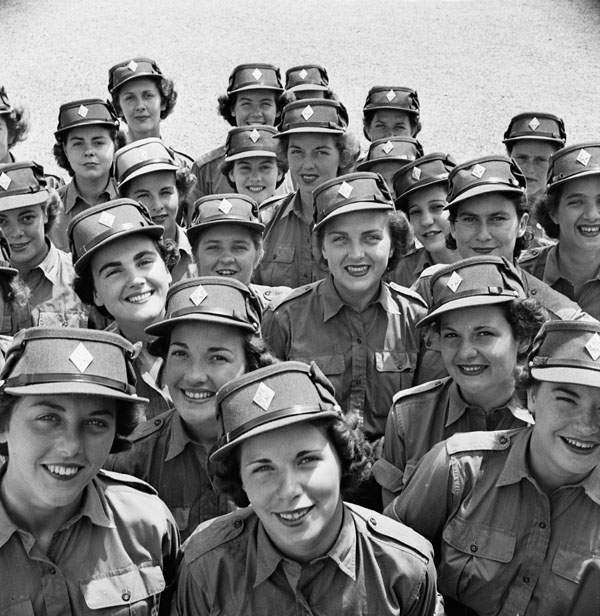
Hepburn complained that Mackenzie King was not prepared enough for the war and hadn’t done a good job of preparing the soldiers. They didn’t have shoes or underwear and were poorly trained. However Mackenzie King was able to form a new majority government with 179 seats and he fought to Canadianize the Air Force, the British didn’t understand Canada’s inferiority complex but Mackenzie King refused to join Churchill’s War Cabinet and refused to go and work in London during the war. Here’s an example of MacKenzie King championing Canada:
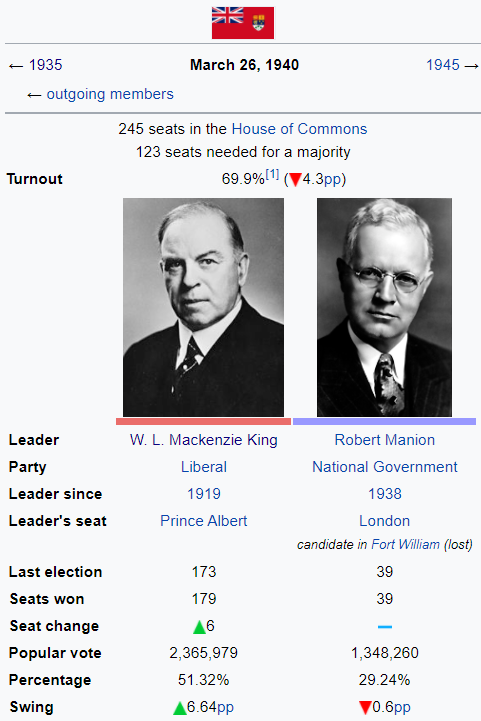
When Mackenzie King was excluded from the Atlantic charter, he needed Winston Churchill and FDR to assuage his ego. At this time, Lapointe was stressed out, opposed various Quebec activities and he died in 1941 to be replaced by a new Quebec lieutenant, future Prime Minister Louis St Laurent.
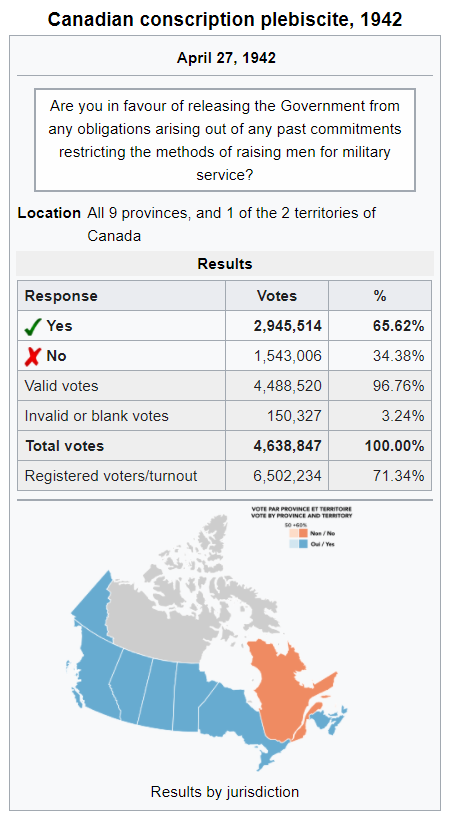
Okay, sometimes history repeats itself, sort of: Conscription 2.0
- King was concerned that he might need to raise more troops then volunteers….and there was a bit of concern about there being conscription of home services (forced military service) but not for overseas services. This created ‘Zombies’ ie men who were not volunteers but were employed in the war effort. These Zombies were considered cowards by the vast majority of soldiers who were volunteers. The Zombies were constantly pressured to “go active” (ie change their status to volunteers).
- This situation triggered a plebiscite regarding conscription on April 27th, 1942 which would relieve Godbout and MacKenzie King from their prior campaign commitments that there would be no conscription of Canadian citizens to fight overseas in battle.
- King was rightly concerned that Gallop polls showed the English were for enabling conscription and the French were against conscription thus heightening the national unity question.
- The Ligue pour la Défense du Canada united a young Pierre Trudeau with Laurendeau, Henri Bourassa and Jean Drapeau in voting “non”. And there may have also been support for the Vichy split up of France as the new normal. There were also arguments relating to anti-Semitism, regarding who was behind drawing Quebec into war. There were also arguments that suggested that if you don’t want to go then don’t go, vote no! Elsewhere, there was also opposition within the German and Ukrainian community in Saskatchewan and Alberta, so as usual (with a binary choice) it’s hard to draw causality from one or any of these arguments, it was a pile up of arguments on either side.
- MacKenzie King uttered the famous phase: “Not necessarily conscription, but conscription if necessary” a classic of remaining aloof. For King, there was this odd situation that he wasn’t even sure that they needed conscription since there so many volunteers….and never really used the Zombies to back up the volunteers even though he won the plebiscite since it would fracture national unity anyway and fractured his cabinet AND there were 1.1M people in the Canadian military, half of which were volunteers so there should have been no shortage.
- Some cabinet ministers threatened to resign if they didn’t send the Zombies overseas….so they eventually, in November 1944, forced 16K Zombies overseas but only a couple thousand ever fought….
- The plebiscite on conscription was not necessary in the end…
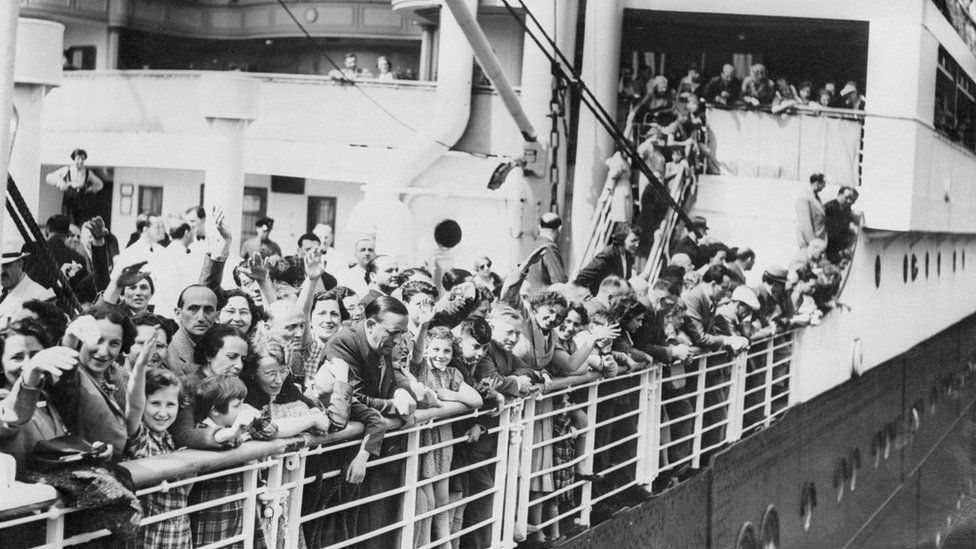
Exclusion of Jewish Refugees
Regarding MacKenzie King’s morally repugnant anti-Semitism, he expressed in his journal a desire to avoid undesirables purchasing property near his home Kingsmere. He wrote for example, “there are good and bad Jews…and it is wrong to condemn a whole race or nation” meanwhile, he had a collection of anti-Semitic books relating to séances delivered to him from one of his medium friends. From 1920 to 1950 quotas, professional job discrimination at universities were common. Signs that would say “no Jews or dogs allowed” which is the kind of prejudice that Canadians today have atoned for. Judaism was associated with banking in the financial sector which was deemed amoral and had caused the financial crisis. Anglo-Saxons were race proud as well. And there was a great deal of anti-Semitism in Quebec as Judaism was perceived as not conducive to assimilation into French values which is a highly subjective claim.
Historically, this injustice all came to a head when the SS St. Louis arrived on Canadian shores, MacKenzie King had them turned away. Of their 907 passengers, 254 died in the holocaust….
- Canada allowed 5,000 Jewish refugees;
- The US allowed 200,000 refugees;
- The United Kingdom allowed 70,000 refugees;
- China allowed 25,000 refugees
So, Canada in particular Quebec were clearly the most anti-Semitic of these countries in terms of its policy. Later in 1944, Duplessis claimed that King and then premier Godbout made a deal with the Jewish conspiracy group to settle 100K Jewish refugees in exchange for campaign financing. (Knowles, Valerie Strangers at Our Gates: Canadian Immigration and Immigration Policy, 1540–2006, Toronto: Dundun Press, 2007 page 149.)
As was the typical case, Mackenzie King and Lapointe were the key decision-makers in the government throughout the 21 years of his leadership. Quebec was the main star in the Canadian orbit and impacted immigration policy.
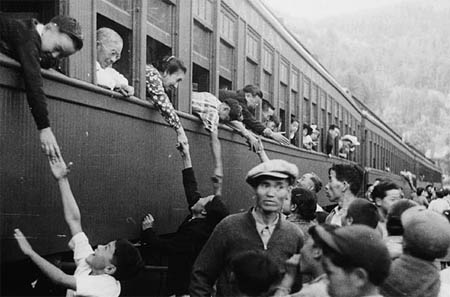
In BC, Japanese internment camps involved the impounding of over 1,200 boats and the internment of 22,000 Japanese Canadians. It is morally disturbing what happened. “It’s the Japanese themselves that need protection” was the logic King applied; arguing that the Caucasians would likely attack on Japanese Canadians. There was hysteria about a conceivable Japanese invasion of BC by mid-1942 which was coupled by cultural and racial prejudice in the form of the Asian Exclusion League, the 1907 riots, all pointing to a complex reality of fear of the other and inescapable lack of means by which we can identify the underlying loyalties of any other fellow human being. Another factor was MacKenzie King, who expressed happiness that the Hiroshima bomb was dropped on Japanese and not Europeans. He viewed Germans and Italians as security threats within Canada and was supportive of deportation or voluntary repatriation in either case.
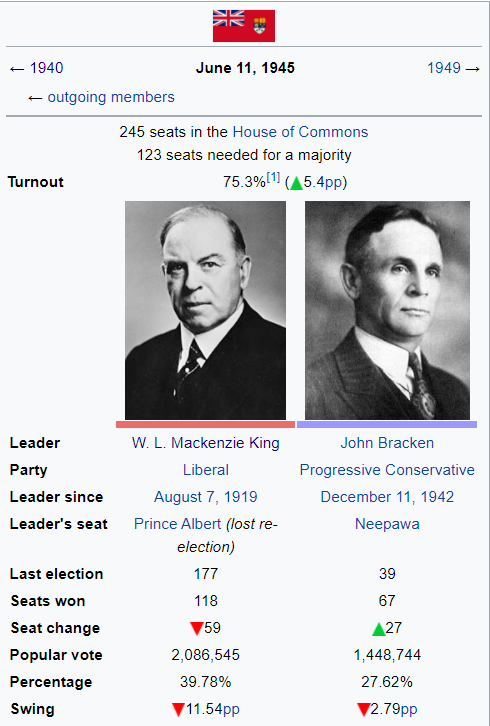
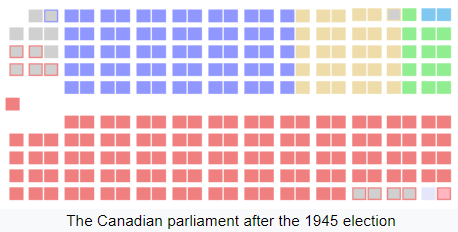
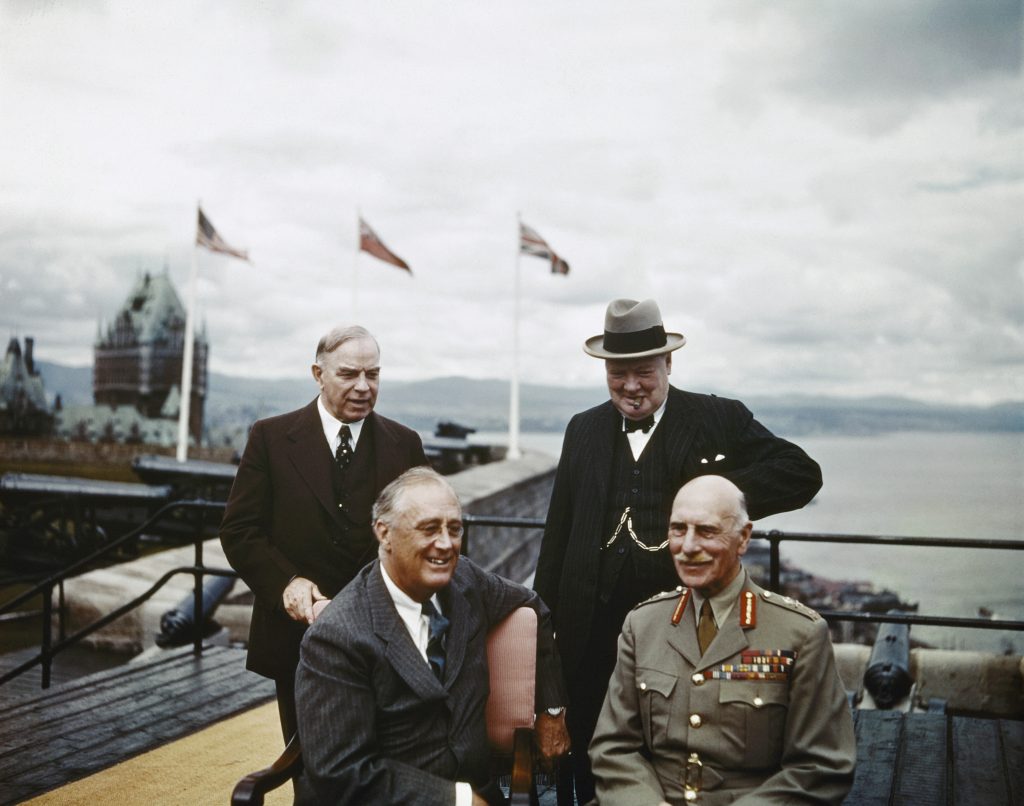
The famous Quebec summit was a way to bring these three major influential powers in line. Churchill, FDR and Mackenzie King got together “we three have more experience in years of government than anyone in our three countries.” MacKenzie King felt good about that summit after having being excluded from the Atlantic charter.
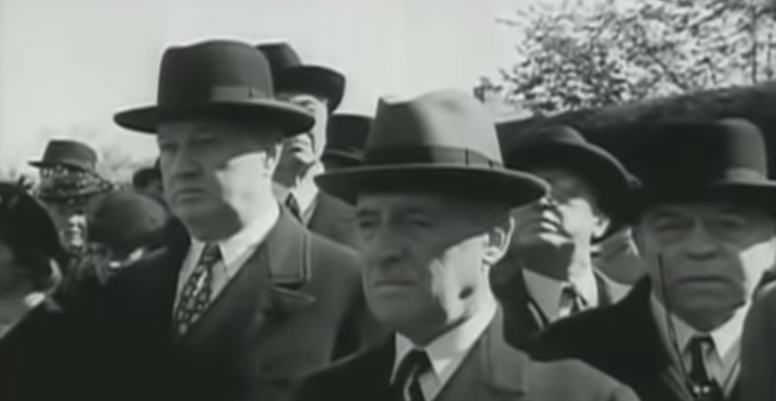
There was the Gouzenko defection that McKenzie King came and cleaned up but he stayed in power for an additional two years because he wanted to beat MacDonald‘s record of 6,937 days in power as Prime Minister.
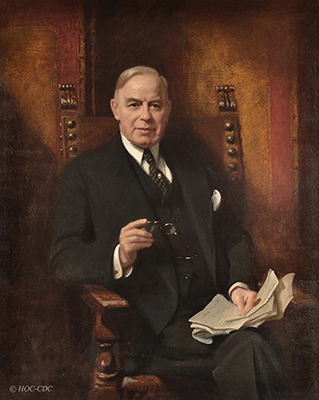
The Great Pragmatist in Chief
There is but one rule in politics you can be principled and committed as you like but without power what is the point? How did William Lyon MacKenzie King do it? His timing was good. He kept Quebec happy, he was blessed with some really incompetent conservatives who alienated Quebec and he was lucky that there were no Quebec nationalist political parties in the 1920s to 40s. He was incredibly bland in his speeches, he rarely said anything newsworthy ever but he understood human nature and knew how to operate the machinery of government. He was very embarrassing on critical social matters but Canada then is not Canada now. And we are better for it, we will need to consider how to avoid morally repugnant choices in the future and in the present day.
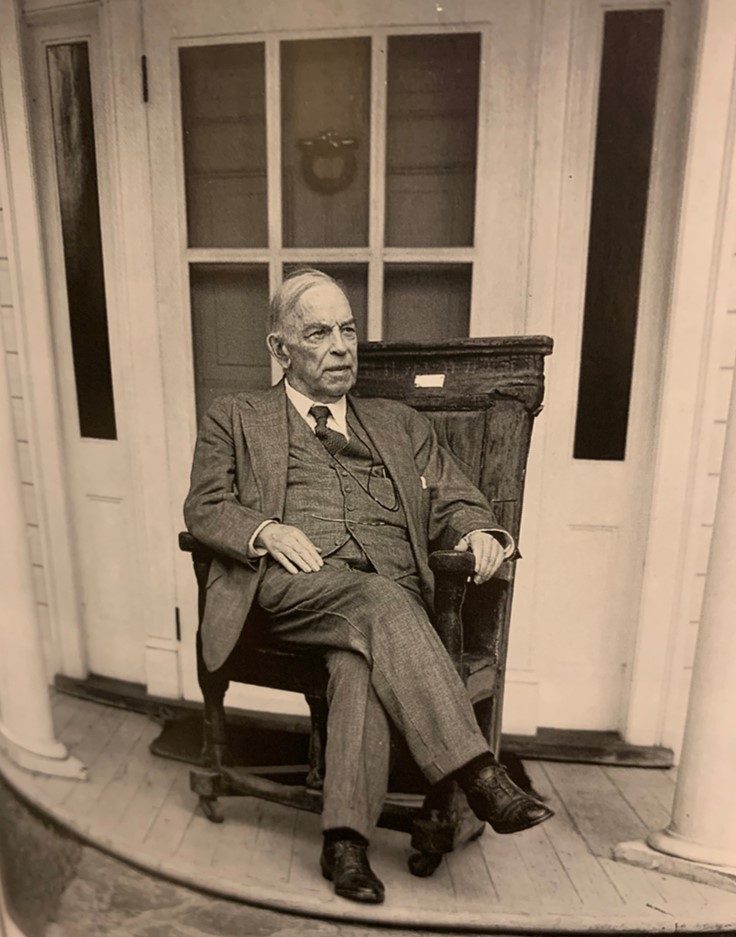
MacKenzie King died in 1950.
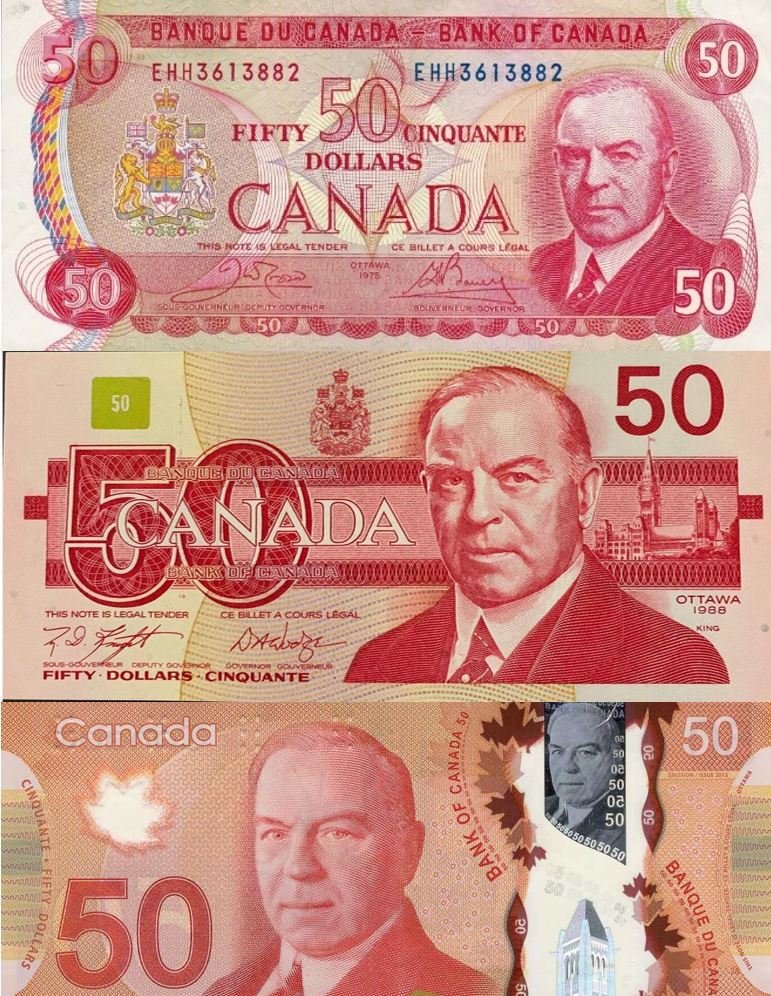
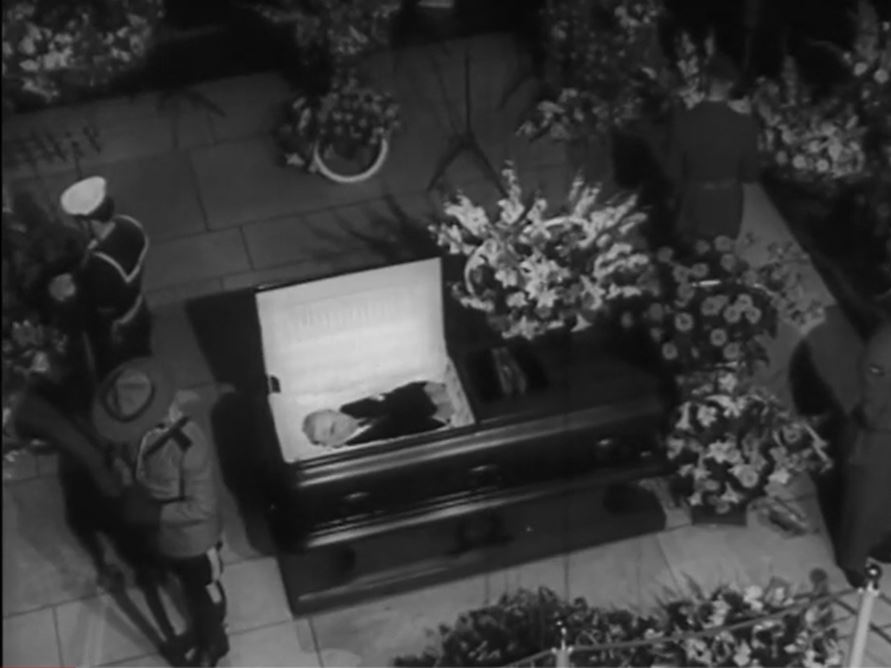
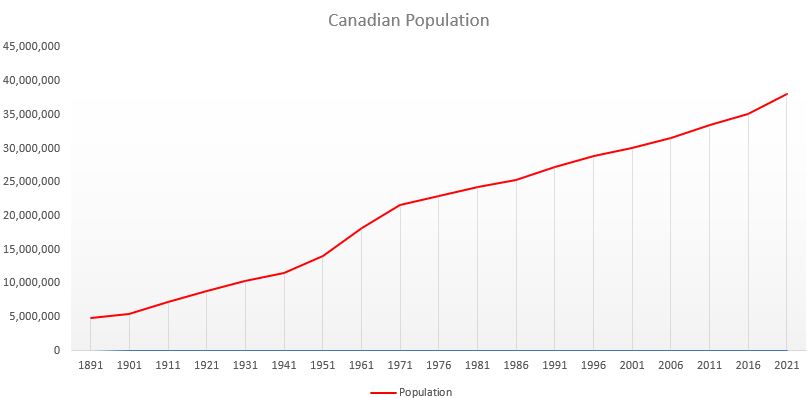
Allan Levine’s biography leaves out a lot of material:
- Prostitution was never mentioned which is odd since that is the most frequently mentioned sensationalism of the WLMK story thanks to A Very Double Life by Stacey CP, the historian who interpreted diary passages to be about prostitutes. MacKenzie King was big on religiously saving prostitutes and there were references to him helping them and vice versa ….
- No biography is available that details how MacKenzie King operated his cabinet, whips, how policy was formulated. How did he work with the civil service, ultimately he was a mandarin and understood what they did for a living and didn’t want to do that for another decade, but how did he manage them? Did they get the better of him? There is no Robert Caro type journalist…the diaries are a good start, but it’s a shame we can’t corroborate those stories since all the principal actors are long gone…
- Where’s the indigenous and residential schools in the biographies of MacKenzie King? It’s simply not addressed.
- Collections Canada from 2002 were lost or discontinued in a site migration or otherwise but it contains a few solid summaries of MacKenzie King’s Diarie (saved by WayBackMachine). The Diaries, themselves are an extensive, day by day diary from the 1890s to the 1950s which is too long to review in their entirety so focusing on specific events makes more sense.

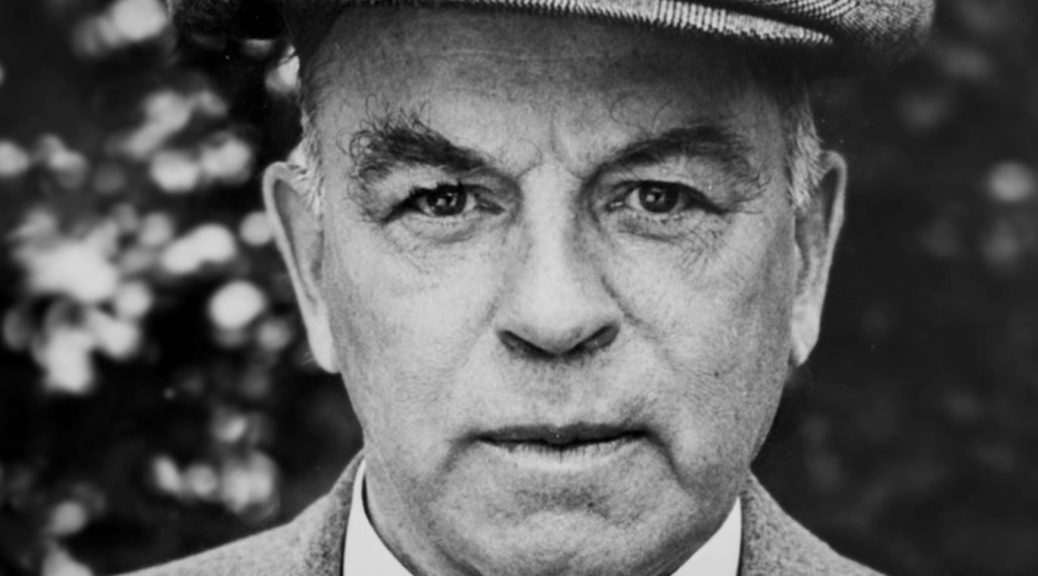
Great Article